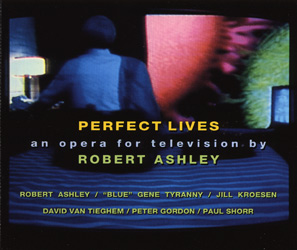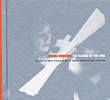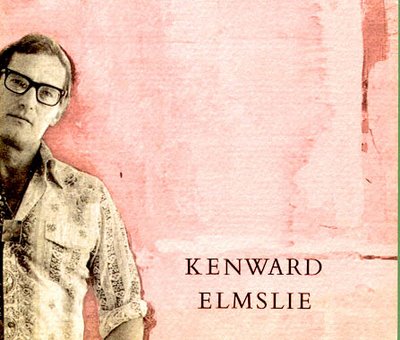Sings friedrich hollaender
"Gesetz dem Fall" (o just suppose)
You know and I know you know
and you know I know you know
all that we both need to know
and we've known it all along
and since we both know
neither one will say "no"
Tell me what is it going to take to turn
knowing into a "yes"
ou
My day is gray,
your day is gray
Let us go together!
We both want to hold hands us
And we understand so right!
Arquivo: Ute Lemper I
28.1.07
24.1.07
Sound Poetry
Depois da série Big Ego (II, III, IV, V, VI, VII, VIII) e das óperas de Robert Ashley, o conceito de Sound Poetry - Música Fonética - Escrita Poética Acústica já não é estranho... mas ainda pode ser assim: Larry Wendt e Stephen Ruppenthal.
Para contextualizar, leiam o próprio Larry Wendt, Narrative as Genealogy: Sound Sense in an Era of Hypertext.
Para contextualizar, leiam o próprio Larry Wendt, Narrative as Genealogy: Sound Sense in an Era of Hypertext.
Etiquetas:
Larry Wendt,
Sound Poetry
23.1.07
17.1.07
Dust

DUST, an opera by Robert Ashley and Yukihiro Yoshihara (video direction) whose imaginary setting is a street corner anywhere in the world, where those who live on the fringes of society gather to talk, to each other and to themselves, about life-changing events, missed opportunities, memory, loss and regret.
Five "street people" recount the memories and experiences of one of their group, a man who has lost his legs in some unnamed war. As part of the experience of losing his legs, he began a conversation with God, under the influence of the morphine he was given to ease his pain. Now he wishes that the conversation, which was interrupted when the morphine wore off, could be continued so that he could get the "secret word" that would stop all wars and suffering. (90 minutes)
Five "street people" recount the memories and experiences of one of their group, a man who has lost his legs in some unnamed war. As part of the experience of losing his legs, he began a conversation with God, under the influence of the morphine he was given to ease his pain. Now he wishes that the conversation, which was interrupted when the morphine wore off, could be continued so that he could get the "secret word" that would stop all wars and suffering. (90 minutes)
1. Friends (15:00)
2. Theosophy (9:57)
3. The Priest (9:57)
4. If There's Anything... (9:57) [excerpt]
Etiquetas:
Contemporânea,
Ópera,
Robert Ashley,
Sound Poetry
12.1.07
Elisabete Matos

Existem certos nomes que não podemos nem devemos desconhecer, mesmo que já os tenhamos perdido para outros mundos maiores que este nosso rectângulo. Um exemplo óbvio e muitas vezes apontado é o de Paula Rego. Vive em Londres. É nossa, mas também já não o é. Não é que cultive o patriotismo desesperado. Gosto muito daqueles versos de Pessoa em O Infante: Deus quis que a Terra fosse toda uma/ Que o mar unisse, já não separasse. (...) E a orla branca foi/ De ilha em continente/ Clareou correndo até ao fim do mundo/ E viu-se a terra inteira, de repente/ Surgiu redonda do azul profundo. Mas sabem, "falta" mesmo "cumprir-se Portugal".
Elisabete Matos é uma soprano lírica e, dizem os entendidos, é fabulosa! Por cá, quem a conhece, para além dos habitués do São Carlos? Leio na Visão/JL: "Já cantou em palcos tão importantes como o do Scala de Milão ou o do Metropolitan de Nova Iorque. Foi Mimi em La Boheme, Tosca na ópera homónima de Puccini e Dona Elvira em Don Giovanni. Vive há 20 anos em Madrid...". Sei que foi Plácido Domingo quem a lançou na cena internacional. Um amigo mais informado esclareceu-me que ela é capaz de interpretar a Abigaille de Nabucco como poucas. Fê-lo há pouco tempo, na Opera de Toulon.
O seu site está escrito em espanhol mas, pesquisando o calendário de concertos para a época 2006/2007, percebo que não podemos acusá-la de ter esquecido Portugal. Lisboa, Porto, Viseu, têm tido e vão ter a honra de a receber. Parece-me pois que é tempo de todos fixarem o seu nome. Elisabete Matos. Merece salas cheias, bilhetes esgotados, certamente muitos aplausos, o que implica, a priori, a nossa curiosidade.
Elisabete Matos é uma soprano lírica e, dizem os entendidos, é fabulosa! Por cá, quem a conhece, para além dos habitués do São Carlos? Leio na Visão/JL: "Já cantou em palcos tão importantes como o do Scala de Milão ou o do Metropolitan de Nova Iorque. Foi Mimi em La Boheme, Tosca na ópera homónima de Puccini e Dona Elvira em Don Giovanni. Vive há 20 anos em Madrid...". Sei que foi Plácido Domingo quem a lançou na cena internacional. Um amigo mais informado esclareceu-me que ela é capaz de interpretar a Abigaille de Nabucco como poucas. Fê-lo há pouco tempo, na Opera de Toulon.
O seu site está escrito em espanhol mas, pesquisando o calendário de concertos para a época 2006/2007, percebo que não podemos acusá-la de ter esquecido Portugal. Lisboa, Porto, Viseu, têm tido e vão ter a honra de a receber. Parece-me pois que é tempo de todos fixarem o seu nome. Elisabete Matos. Merece salas cheias, bilhetes esgotados, certamente muitos aplausos, o que implica, a priori, a nossa curiosidade.
Ballo in maschera - Verdi
Elisabete Matos & Denis O'Neil
Etiquetas:
Elisabete Matos,
Música Clássica,
Música Portuguesa,
Ópera,
Vídeo
11.1.07
Perfect Lives
 Robert Ashley, solo voice; Jill Kroesen and David Van Tieghem, chorus; "Blue" Gene Tyranny, keyboards; David Van Tieghem, non-keyboard percussion; Peter Gordon, music producer; Paul Shorr, soundtrack producer.
Robert Ashley, solo voice; Jill Kroesen and David Van Tieghem, chorus; "Blue" Gene Tyranny, keyboards; David Van Tieghem, non-keyboard percussion; Peter Gordon, music producer; Paul Shorr, soundtrack producer.Perfect Lives has been called "the most influential music/theater/literary work of the 1980s." At its center is the hypnotic voice of Robert Ashley. His continuous song narrates the events of the story and describes a 1980's update of the mythology of small town America. Perfect Lives is populated with myriad characters revolving around two musicians — "R", the singer of myth and legend, and his friend, Buddy, "The World's Greatest Piano Player". They have come to a small town in the Midwest to entertain at the Perfect Lives Lounge. As Robert Ashley describes in the opera synopsis, "they fall in with two locals to commit the perfect crime, a metaphor for something philosophical: in this case, to remove a sizable about of money from The Bank for one day (and one day only) and let the whole world know that it was missing."
The eloping couple, Ed and Gwyn, the old people at the home, the sheriff and his wife (Will and Ida) who finally unravel the mystery, and Isolde who watches the celebration of the changing of the light at sundown from the doorway of her mother's house are some of the characters who journey through the seven episodes of the opera.
Derived from a colloquial idiom, Perfect Lives transforms familiar material into an elaborate metaphor for the rebirth of the human soul. It has been called a comic opera about reincarnation.
The eloping couple, Ed and Gwyn, the old people at the home, the sheriff and his wife (Will and Ida) who finally unravel the mystery, and Isolde who watches the celebration of the changing of the light at sundown from the doorway of her mother's house are some of the characters who journey through the seven episodes of the opera.
Derived from a colloquial idiom, Perfect Lives transforms familiar material into an elaborate metaphor for the rebirth of the human soul. It has been called a comic opera about reincarnation.
Disc 1:
1. The Park (Privacy Rules) (24:25)
2. The Supermarket (Famous People) (24:53)
3. The Bank (Victimless Crime) (25:03) [excerpt]
Disc 2:
1. The Bar (Differences) (24:48) [excerpt]
2. The Living Room (The Solutions) (25:07)
Disc 3:
1. The Church (After the Fact) (24:44)
2. The Backyard (T'Be Continued) (24:45) [excerpt]
Etiquetas:
Contemporânea,
Ópera,
Robert Ashley,
Sound Poetry
9.1.07
8.1.07
5.1.07
Big Ego
Big Ego é um dos 4 álbuns editados pela Giorno Poetry Systems, uma "marca artística" americana criada por John Giorno. Giorno queria que a poesia fosse comunicada às massas por via de todos os suportes tecnológicos e mediáticos, como o telefone, a televisão ou a rádio. O registo audio tornava-se assim fundamental. John Giorno reuniu músicos e performers que se viriam a tornar famosos. É o caso de Frank Zappa, Philip Glass, Allen Ginsberg, John Cage, Brion Gysin, Diamanda Galas, Laurie Anderson ou Meretith Monk. Nos próximos tempos, vou passar alguns desses registos. Education of the Girlchild, de Meredith Monk é o primeiro. Enjoy it!
No arquivo:
Laurie Anderson em Montemor-O-Velho: 1, 2, 3, 4, 5, 6, 7.
Meredith Monk em Aveiro: 1; no Atentado (meu blog adormecido), vejam fotos do workshop a que assisti, orientado pela diva MM; o concerto que ela deu no Aveirense ficou apenas registado cá dentro.
Já agora, deixo a marca de um paixão antiga, por Philip Glass.
No arquivo:
Laurie Anderson em Montemor-O-Velho: 1, 2, 3, 4, 5, 6, 7.
Meredith Monk em Aveiro: 1; no Atentado (meu blog adormecido), vejam fotos do workshop a que assisti, orientado pela diva MM; o concerto que ela deu no Aveirense ficou apenas registado cá dentro.
Já agora, deixo a marca de um paixão antiga, por Philip Glass.
Etiquetas:
Allen Ginsberg,
Diamanda Galás,
John Giorno,
Laurie Anderson,
Meredith Monk,
Philip Glass,
Sound Poetry
Este som que nos enlouquece... A culpa é do microfone.
Horn (6:21), de Gordon Mumma
Gordon Mumma, French Horn; Robert Ashley, Cybersonic Console; George Cacioppo, Cybersonic Console.
Horn is a live-performance electronic "chance" composition. The sound source is a French Horn fitted with a special mute containing a microphone. The sounds from the microphone are fed to the two cybersonic consoles (transistorized sound modifiers). The consoles are operated by two performers who determine the continuity of the work during each performance, according to the conditions specified by the composer. Thus, the composition changes at each performance.
Para mais info, consultem Aspen No. 4
Gordon Mumma, French Horn; Robert Ashley, Cybersonic Console; George Cacioppo, Cybersonic Console.
Horn is a live-performance electronic "chance" composition. The sound source is a French Horn fitted with a special mute containing a microphone. The sounds from the microphone are fed to the two cybersonic consoles (transistorized sound modifiers). The consoles are operated by two performers who determine the continuity of the work during each performance, according to the conditions specified by the composer. Thus, the composition changes at each performance.
Para mais info, consultem Aspen No. 4
Etiquetas:
Contemporânea,
Gordon Mumma
1.1.07
Subscrever:
Mensagens (Atom)
















